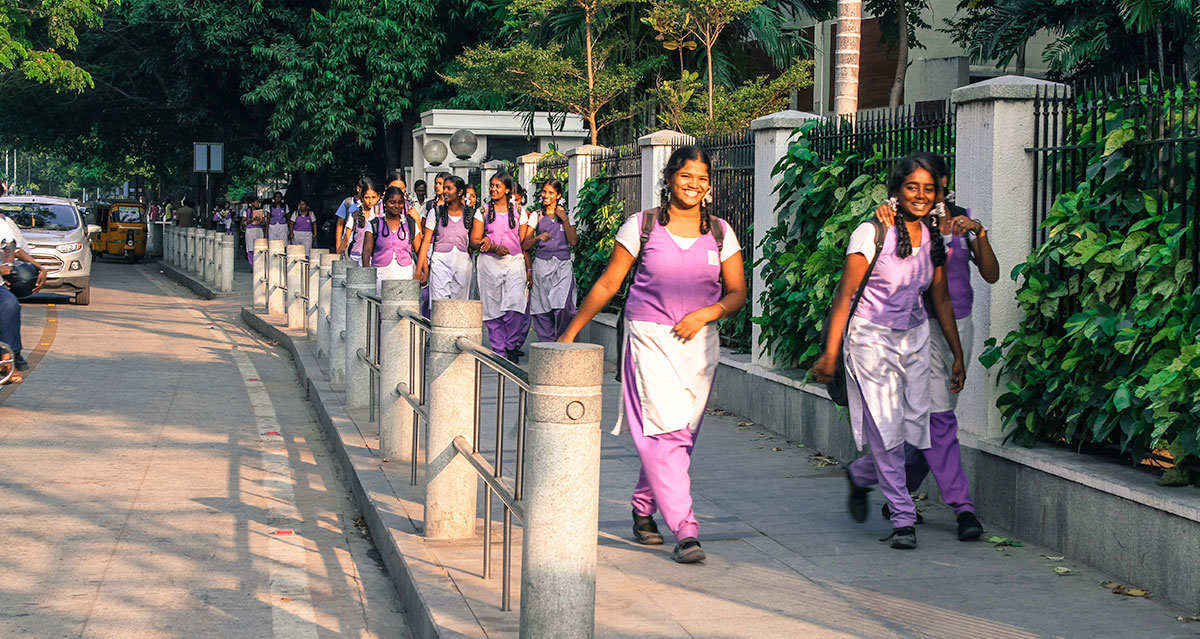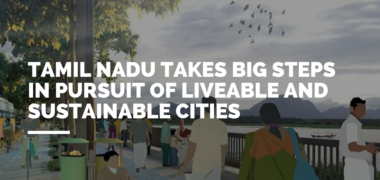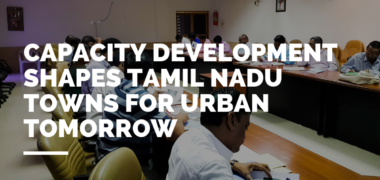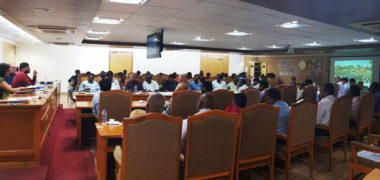Tamil Nadu is witnessing rapid urbanization, with 49% of its population living in urban areas, the second highest in the country. However, this urban growth comes with its challenges, including a concerning increase in road accidents. In 2021, Tamil Nadu reported the highest number of road crashes in the country, with 55,682 accidents, accounting for 13.5% of all accidents. Additionally, there has been a significant 23% growth in the number of vehicles in the state within a 10-year period.
What We Do
In 2009, ITDP India began its work in Chennai, leading to the adoption of India’s first Non-Motorised Transport Policy. This policy paved the way for the transformation of 140 kilometres of streets with improved footpaths, enhancing the walking experience for citizens.
To address urban migration and promote sustainable transport, we collaborated with the Tamil Nadu Commissionerate of Municipal Administration on the Sustainable Cities Through Transport initiative. This effort involved engaging tier-II cities like Coimbatore, Madurai, Tiruchirappalli, Tirupur, and Salem to identify sustainable transport network plans, allocate budgets, and implement projects. As a result, Coimbatore, Tirupur, and Trichy were allocated Rs 50 crore to introduce the Public Bicycle Sharing system.
Building on Tamil Nadu’s Electric Vehicle (EV) Policy, we are actively involved in supporting the state’s transition to electric transport. Our contributions include providing recommendations for the revision of the EV policy, conducting focus group discussions with auto drivers to understand their perspectives and barriers towards electrification, and organizing media workshops to promote meaningful and impactful coverage of Tamil Nadu’s efforts to decarbonize transport.










